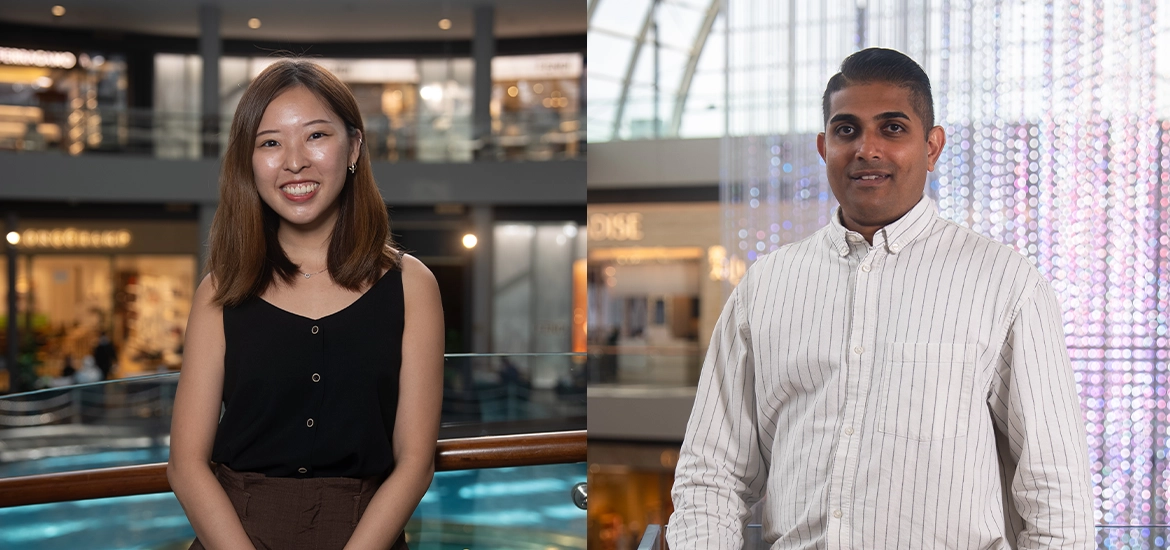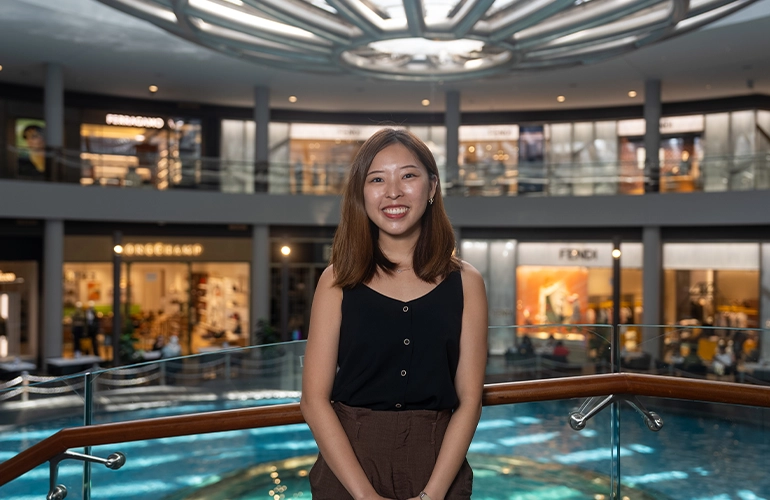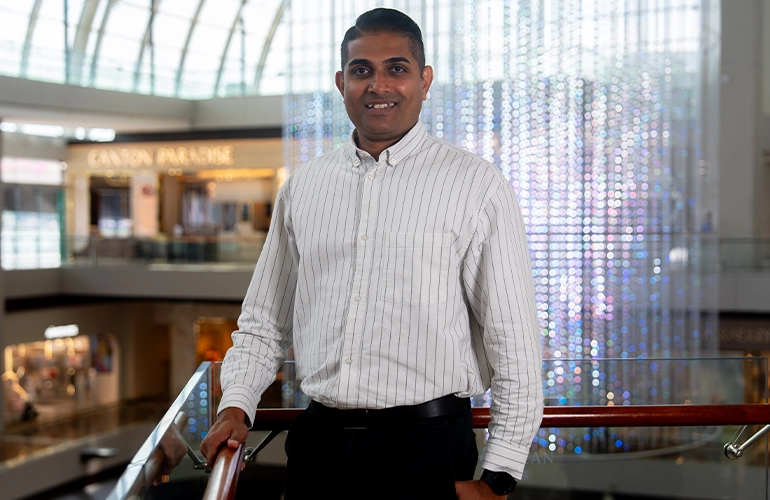Bernice Ng is a Senior Executive in the Sustainability team at Marina Bay Sands. Her responsibilities include attaining and maintaining global and local sustainability certifications, communicating Marina Bay Sands’ sustainability efforts and educating staff, tenants and guests on the importance of going green.
1. Tell us more about how Marina Bay Sands approaches sustainability
At Marina Bay Sands, we put sustainability at the heart of luxury hospitality. Being an integrated resort with large-scale operations, our sustainability focus areas range from the low-carbon transition to water stewardship. Other priorities include biodiversity, waste and circularity, as well as culture and advocacy.
Our approach towards sustainability is three-pronged: sustainable building design, cutting-edge technology, and extensive staff education. Our building was designed with sustainability in mind, from the Intelligent Building Management system tracking 125,000 data points across the entire property to the glass façade allowing natural sunlight to flow into the premises and minimising the need for overhead lights in the day.
Our food waste management system is multi-pronged. The Team Member Dining Room serves 15,000 to 17,000 meals daily and employees sort their waste into food and non-food waste. Unserved food waste is weighed using an AI-powered machine which records the type and quantity of waste, allowing our chefs to better plan food serving portions and reduce wastage. From there, the food waste is sent to our WasteMaster machines and broken down into organic matter through oxidation. Over 1,250kg of waste is broken down into 250kg of dry, odourless substrate within a day and subsequently sent offsite to be transformed into fish feed for an aquaponics farm.
These are some examples of how we are always looking for ideas and approaches to bring more sustainability practices into the work that we do. For me, it’s meaningful to see the planning and research behind these initiatives being translated into sustainable actions that truly make a difference.
2. What made you decide to take up a sustainability role, since it wasn’t what you studied?
My interest has always been in the outdoors and the environment, though my degree was in communication studies. Prior to graduation, I did an internship in the sustainability team at Marina Bay Sands and was exposed to its wide-ranging sustainability portfolio. It opened my eyes to the different facets of sustainability and how a large organisation can indeed make a difference. My teammates didn’t come from sustainability backgrounds – they trained in tourism, engineering and geography and other fields. These have given us diverse skillsets, leading to a firm foundation which allows us to carry out our jobs here.
It’s been almost four years at Marina Bay Sands now, and while we know that sustainability is not an area in which there are immediate results, I am starting to see the impact of my work on our Team Members and guests, and that makes this role all the more meaningful.
3. What’s your advice for fresh graduates keen on a role in the tourism industry? What are the most important skills to have as they start out in their careers?
Be open to learning and trying. The tourism industry is ever-changing and no two days are the same. That's what makes it fun as it also gives you the opportunity to be exposed to many things. If you get to take on different tasks outside of your main job scope, seize the opportunity to try it out as that might very well help you in your next role. You'll come to realise that many functions are interconnected and things constantly change, so being adaptable will help you keep up with the dynamic nature of the industry.
Building strong relationships with internal and external stakeholders and having a curious nature are equally important. The tourism industry is a people-centric one, where your relationships and daily tasks involve interacting with people. It’s important to ensure relationships are well built and maintained so that you can continue creating memorable experiences for your guests. Having a smile on your face and a warm disposition can help brighten a guest's day.
As the industry is constantly evolving, it’s important to remain curious about new trends and seek out new experiences. Having an inquisitive mindset and wanting to understand the “why” behind things will allow you to stay relevant and discover opportunities you might otherwise miss.









